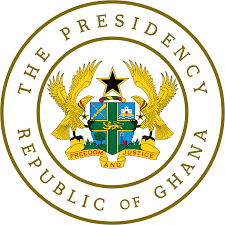Ghana: Deepening Public Understanding to Make Ghana’s Tax Reforms Work

As Ghana prepares for the rollout of wide-ranging tax reforms in January 2026, one message rings louder than ever: the success of these policy shifts will hinge not merely on legislation, but on communication. The Commissioner-General of the Ghana Revenue Authority (GRA), Mr Anthony Kwasi Sarpong, has called on the media to intensify public education on the new tax regime. His appeal is timely and essential.
For years, tax compliance in Ghana has struggled under the weight of limited public understanding. Many citizens and businesses hesitate to fulfil their tax obligations, not necessarily out of refusal, but because the system often appears complex, technical, and at times, intimidating. Mr Sarpong rightly noted that any payment taken directly from one’s pocket evokes a natural reluctance, which can only be eased through clear, simplified communication.
At a forum with editors in Accra, the Commissioner-General described the media as a “critical partner” in national tax education. The upcoming reforms are among the most comprehensive in recent years, covering new VAT legislation, amendments to the Income Tax and Customs Acts, and technological innovations aimed at real-time revenue tracking. These structural shifts require a coordinated change management effort, ensuring citizens understand not only what is changing, but why those changes matter for national development.
The reforms introduce new elements that will affect households, traders, digital consumers, and corporate entities alike. A new VAT law is set to take effect, accompanied by a decoupling that removes VAT previously charged on GETFund and NHIS levies. Changes to the Income Tax and Customs Acts are also anticipated, while the Physical and Electronic Devices Act is expected to automate VAT collection at retail and service points. This means every transaction–from shop purchases to service deliveries–will soon be captured digitally, improving transparency and reducing revenue leakages.
In the digital economy, the GRA is stepping into territories long left unregulated. New tools are being piloted to capture VAT on online purchases, cryptocurrency gains, and cross-border digital transactions. These measures are crucial for modernising revenue administration and ensuring equity between local and online buyers. As digital consumption grows, so must the country’s ability to tax this space effectively.
However, these innovations will fall short without broad public understanding. The Assistant Commissioner in charge of Customer Experience, Dr Birago Antwi-Adjei, highlighted that only 1.2 million people are currently registered taxpayers, with compliance as low as 30 per cent. Heavy enforcement, she warned, can alienate taxpayers. What Ghana needs is voluntary compliance, which hinges on education.
Encouragingly, the GRA has established a Working Group to craft a three-year national tax education strategy. Yet, this effort cannot succeed in isolation. The media must amplify, simplify, and contextualise the reforms, while journalists must understand the measures deeply enough to explain them without ambiguity. Ultimately, tax reforms are not just administrative exercises–they are national development tools. For Ghana to achieve a fair, modern, and efficient tax system, communication must take centre stage. The GRA has extended a hand to the media; the task ahead is clear: inform, educate, and demystify. The nation’s revenue future depends on it.
By Ghanaian Times.



